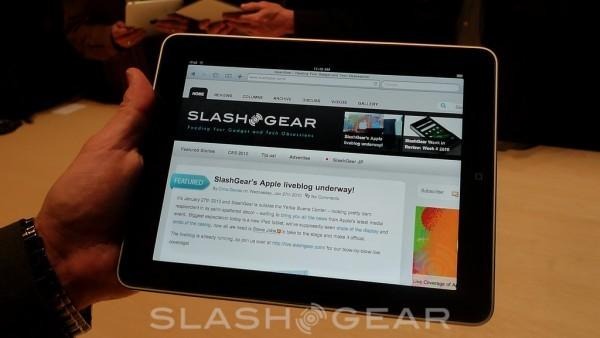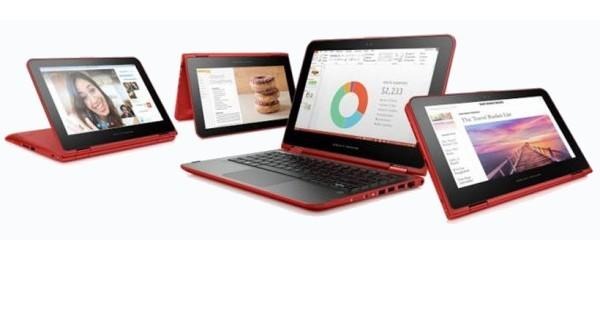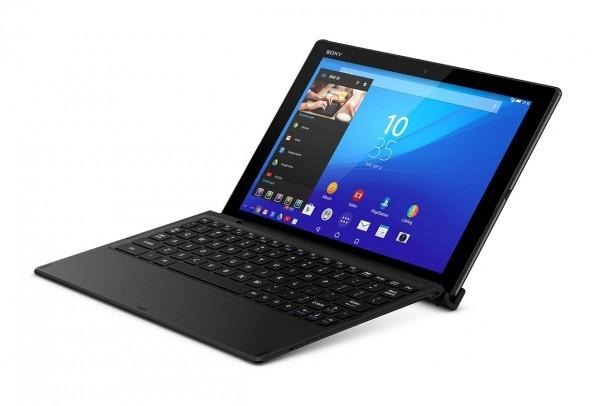Quo Vadis Tablet? The Future Of Mobile Slabs
The once well-defined boundaries between computing devices, delineated by form factors, are blurring. PCs are no longer towering boxes but can also be found in something as small as an HDMI dongle. Laptops are no longer just rigid folding portable computers. There are smartphones that can barely fit in your hand, much less your pockets. And tablets, well, they've become less defined these days. They might also be less needed, threatened by phablets on one end and hybrid laptops on the other. Is there a future for tablets? Perhaps, but not without some major changes, particularly in how consumers see them.
The re-birth of tablets
Tablets have existed for more than a decade, particularly in the hulking forms of Tablet PCs but it is Apple that can be credited for having made tablets not just a consumer device but also somewhat of a lifestyle. As the trailblazer, Apple laid down the rules of what a modern tablet is and isn't, a definition that would, to some extent, limit what the early iPads were allowed to do. They were, primarily, content consumption devices. To some extent, they were more like extensions of an iPhone for content that is best viewed in a larger screen, like videos, books, and images. Of course, that didn't prevent others, even Apple itself, from giving the iPad some content creation capabilities, but, until recently, those were more like side effects than explicit goals.

Fast forward half a decade later, tablets have definitely become more than that. Thanks to Android, the tablet market didn't stay a one-horse race. Tablets now come in all shapes and sizes, some with pens, some with keyboards. But just as Android diversified the tablet market, it also diluted its purpose. No longer limited to just consumption, tablets have expanded to serious content creation and almost anything else that can be done within hardware and software limits. Tablets have become jacks of all trades. It would have been well and good, if not for the fact that other computing devices have started to move as well.
The rise of phablets
Like it or not, phablets are here to stay. The somewhat artificially created sub-market of smartphones 5.5 inches and larger have started to straddle both mid and top tier segments of the smartphone range. Though they wildly differ in specs, all chant a similar song: bigger is better. The bigger screen can squeeze in more content inside and let you view them without straining your eyes. Of course, they were a horror to operate with one hand or even two small hands, but their continued existence proves how much users are willing to sacrifice one feature for another, if the spiel and price is right.
Naturally, this put the purpose of tablets, particularly smaller ones, into question. Tablets once had a monopoly of letting you enjoy content on a bigger screen, but now smartphones can do that too. Although still substantially smaller than the smallest tablet, phablets can do almost everything a tablet can if you can squint hard enough. They're substantially more portable too. For the longest time, market analysts predicted that small tablets 7 inches and below would start to disappear from the market, cannibalized by their phablet cousins. Tablet makers, specifically Android ones, responded by creating new tablet sizes in 8, 8.9, or even 12 inch sizes. For a time, it seemed that tablets would be safe. That is until the other end of the rope also started moving forward.
Hybrids mix it up
Tablet PCs are back with a vengeance. And with a face lift too! With their sales hurt by iPad and Android tablets, tablet PC makers went back to the drawing board to update their strategy. Some have kept to ye ol' convertible form factor, with a screen permanently attached to a keyboard. Of course, they added a modern twist, almost literally, demonstrated by the likes of Lenovo's YOGA line or the dearly departed Sony VAIO sliders. Some have taken the tablet lessons to heart, opting for a new "2-in-1" class, with standalone tablets that can pair up with a keyboard, either physically or wirelessly. The age of hybrid PCs have arrived.

On face value, these devices seem to offer the best of both worlds. They offer the mobility of your garden variety tablets but, at the same time, the productivity and general purpose utility of a laptop. If only things are that perfect. Almost all of these hybrids ran Windows 8, which is not exactly the best when it came to mobile operating systems. And given their origin in laptops, many of these cannot even dream of reaching the slim profile or the burden-free weight of tablets, which limit their portability to some extent.
Things, however, are changing fast. There are now Android tablets that take on the guise of hybrid laptops and there are now Windows tablets, like the new Surface 3, that come close to iPad mobility. Laptops have also started sporting touchscreens, further blurring the boundaries between devices. And although a large focus of Windows 10 has been to reconcile the desktop aspect of the OS, the universal platform bears the implicit promise of an improved mobile experience.
Wrap-up
Tablets aren't going anywhere any time soon, but what we know today as tablets are going to undergo a shift. There's no stopping phablets from cannibalizing smaller tablets, but tablets like these will always be around for those who either have no smartphones or prefer a smaller one or even a feature phone to go along with the tablet.
Larger tablets, on the other hand, will no longer be the same. They will no longer be content consumption devices with creation on the side. They will, instead, become general purpose devices that lets you do anything and everything within hardware and platform limits. Yes, in short, they will be come very mobile laptops/hybrids. We're seeing this movement already. Android and Android tablets are becoming increasingly oriented towards productivity uses. The rumored iPad Pro is a large slate intended for the office as well. Accessories that turn tablets into makeshift laptops go hand in hand with more desktop-oriented software that work better with keyboard, mouse, or stylus. It wouldn't be too far fetched to say that tablets will be cannibalizing the hybrid market segment this time around.

Tablets as general purpose mobile computers akin to laptop hybrids. It's a very subtle change in what the first generation of tablets were, but it's a change that opens up tablets to a world of possibilities. And when you have the whole world open before you, there is very little doubt about whether you have a future at all.
